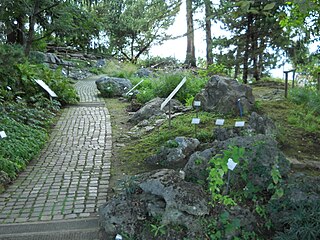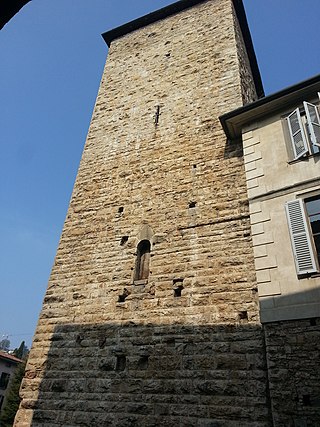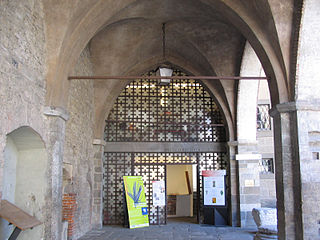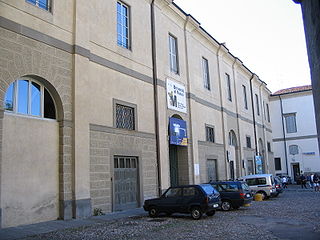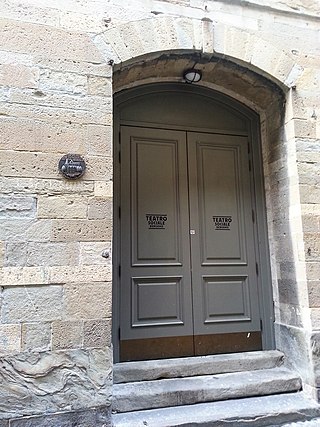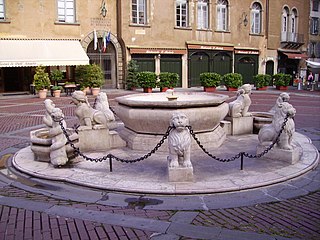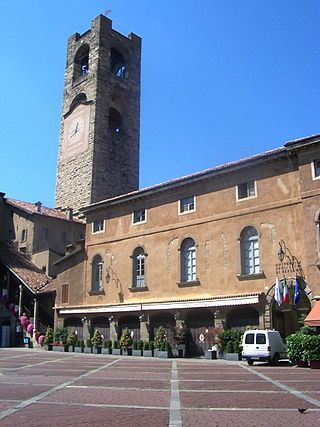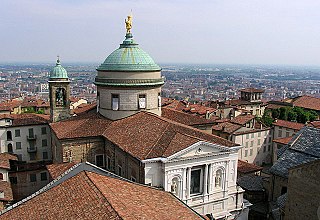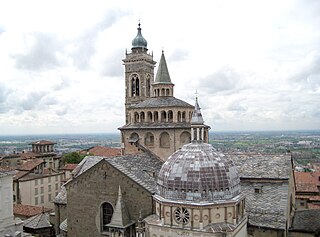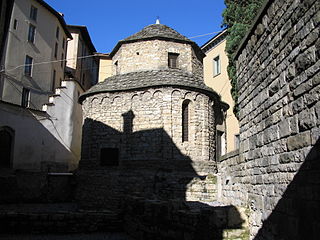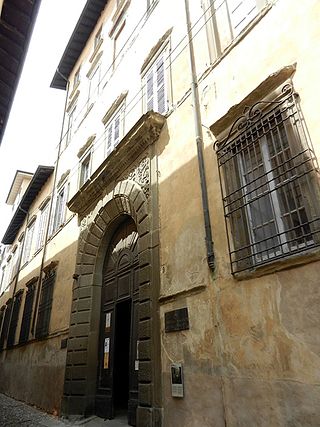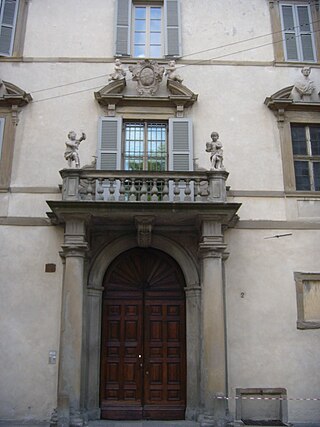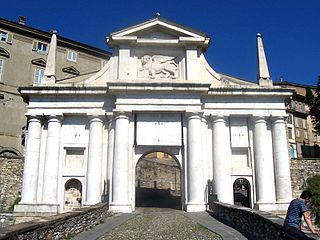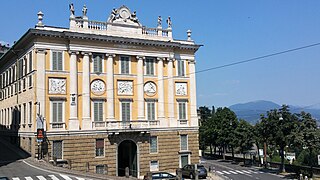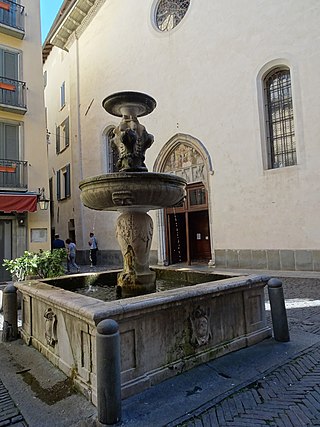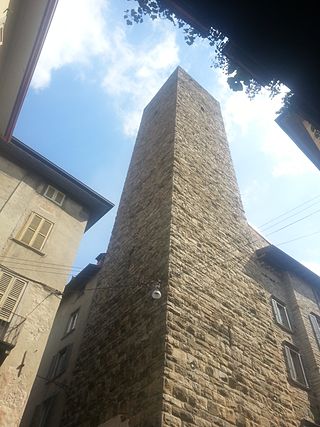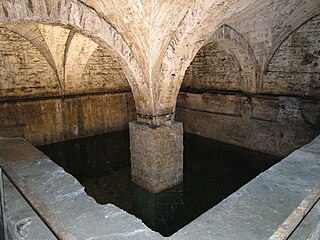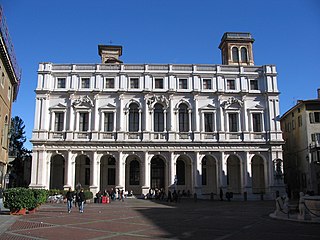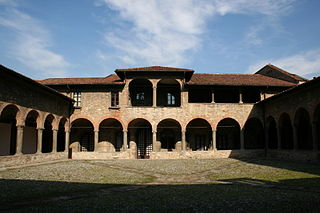Self-guided Sightseeing Tour #1 in Bergamo, Italy
Legend
Guided Free Walking Tours
Book free guided walking tours in Bergamo.
Guided Sightseeing Tours
Book guided sightseeing tours and activities in Bergamo.
Tour Facts
3.5 km
175 m
Experience Bergamo in Italy in a whole new way with our free self-guided sightseeing tour. This site not only offers you practical information and insider tips, but also a rich variety of activities and sights you shouldn't miss. Whether you love art and culture, want to explore historical sites or simply want to experience the vibrant atmosphere of a lively city - you'll find everything you need for your personal adventure here.
Activities in BergamoIndividual Sights in BergamoSight 1: Orto Botanico di Bergamo Lorenzo Rota
The "Lorenzo Rota" Botanical Garden of Bergamo, which is located on the open hill of the Upper Town, is a small naturalistic laboratory where the passion and art of the workers make exotic plants coexist with indigenous ones. It is part of the Network of Botanical Gardens of Lombardy, an association that the Garden of Bergamo has contributed in a decisive way to create and which aims to "protect, knowledge, promote and enhance the heritage of botanical gardens, nature and the environment". It is named after Lorenzo Rota, a doctor and botanist who was the first to describe the flora of the province of Bergamo. The 10,000 samples he collected are kept in the herbarium of the Botanical Garden consisting of about 50,000 exiccata.
Sight 2: Torre di Adalberto
The Adalberto tower or as it is better known the hunger tower, is among the oldest documented towers in Bergamo from the Middle Ages, it is located in the outer corner of the Visconti Citadel.
Sight 3: Museo Civico Archeologico
The Civic Archaeological Museum of Bergamo, which is located in Piazza Cittadella n. 9 in Bergamo, consists of different sections: prehistoric, Egyptian, Roman, early Christian and Lombard.
Sight 4: Museo Civico di Scienze Naturali E. Caffi
The Enrico Caffi Civic Museum of Natural Sciences in Bergamo, located in the Upper Town in the Citadel near the Civic Archaeological Museum of Bergamo, preserves more than a million artifacts distributed over an exhibition area of over 1800 m².
Wikipedia: Museo di scienze naturali (Bergamo) (IT), Website
Sight 5: Teatro Sociale
The Teatro Sociale di Bergamo is a theater located in Bergamo Alta, in via Bartolomeo Colleoni, a street like the Corsarola.
Sight 6: Fontana Contarini
The Contarini fountain is a fountain located in the city of Bergamo.
Sight 7: Palazzo del Podestà, Museo del Cinquecento
The Palazzo del Podestà is a historic building in the city of Bergamo located on Piazza Vecchia and houses the Museum of the Sixteenth Century which is part of the network of the Museum of the Stories of Bergamo managed by the Bergamo Foundation in history.
Sight 8: Cappella Colleoni
Get Ticket*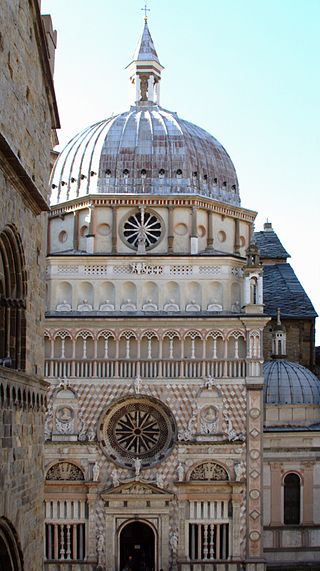
The Cappella Colleoni is a chapel and mausoleum attached to the Basilica of St. Mary Major in the northern Italian city of Bergamo.
Sight 9: Duomo di Bergamo
Bergamo Cathedral is a Roman Catholic cathedral in Bergamo, Italy, dedicated to Saint Alexander of Bergamo, patron saint of the city. It is the seat of the Bishop of Bergamo.
Sight 10: Basilica di Santa Maria Maggiore
The Basilica of Santa Maria Maggiore is a major church in the upper town of Bergamo, Northern Italy.
Sight 11: Templetto Santa Croce
The Tempietto di Santa Croce is a small octagonal Romanesque chapel found in the upper city of Bergamo, near the Santa Maria Maggiore. The original building was constructed in the first half of the 11th century, though first documentation of the structure dates to 1133. Other Romanesque structures in the province include the Rotonda di San Tomè, the Basilica di Santa Giulia, and the Priorato di Sant'Egidio.
Sight 12: Museo Donizettiano
The Donizetti Museum is a cultural site in Bergamo, in Lombardy, Italy. It is dedicated to the composer Gaetano Donizetti (1797–1848), who was born in the city.
Sight 13: Palazzo Terzi
The seventeenth-century Palazzo Terzi is located on the edge of the fortress in the upper part of Bergamo, and is the most important Baroque palace in the city.
Sight 14: Porta San Giacomo
Porta San Giacomo, perhaps the most beautiful of the access gates from the Venetian walls to the upper city of Bergamo, was built in 1592, it is the only one in pinkish white marble from the Zandobbio quarry in Val Cavallina. The construction of the Venetian walls began in 1561, and they were to be the outpost protected to the west of the territories of the Serenissima by the Milanese who after the death of Francesco Sforza II (1535) and the peace of Cateau-Cambrésis (1559) had become a Spanish province. The walls have four gates that make the entrance to the upper part of the city accessible: Porta San Lorenzo, Porta Sant'Agostino, Porta Sant'Alessandro and Porta San Giacomo, and until the mid-twentieth century when the Campanone at 10 pm struck a hundred tolls, they were closed.
Sight 15: Palazzo Medolago
Palazzo Medolago Albani is located in Bergamo on Viale delle Mura near Porta San Giacomo.
Sight 16: Fontana di San Pancrazio
The fountain of San Pancrazio is located on the square of the same name in Bergamo in front of the church dedicated to the saint of Turkish origin and rebuilt in 1450. Because of its shape, it is also called hyacinth's bud.
Sight 17: Torre del Gombito
The Gombito tower is located in the upper part of the city of Bergamo, at the intersection of the street of the same name, Via San Lorenzo and Via Mario Lupo, the most central and important crossroads of the ancient city.
Sight 18: Fontana del Lantro
The Lantro fountain is a fountain located in the city of Bergamo mentioned as early as the end of the tenth century.
Sight 19: Palazzo Nuovo
The Palazzo Nuovo in Bergamo, home to the Angelo Mai Civic Library, is located in the upper part of the city, on the northeastern side of the Piazza Vecchia which closes, thus, like a backdrop.
Sight 20: Museo delle storie di Bergamo - Convento di San Francesco
The Historical Museum of Bergamo or Museum of the Stories of Bergamo is the museum and administrative venue in the Alta city, in the former convent of San Francesco as regards the offices, the library and the archives, and manages more permanent offices that study and exhibit the Political, economic, and social history of the city and its territory. The museum pole also offers large spaces for temporary events and exhibitions.
Share
How likely are you to recommend us?
Disclaimer Please be aware of your surroundings and do not enter private property. We are not liable for any damages that occur during the tours.
GPX-Download For navigation apps and GPS devices you can download the tour as a GPX file.
